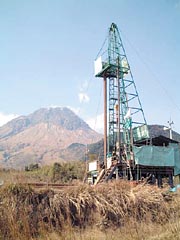
The combination of lower interest rates, a Federal Reserve Board chairman who indicated a willingness to make further reductions and tax rebate checks should have provided a lift to the U.S. economy in the second half of 2001. Unfortunately, the attacks and the subsequent war on terrorism have postponed that lift. We estimate negative growth from the fourth quarter of 2001 through much of 2002, slowly rising to an economic recovery later this year. Significant disruption of certain sectors, such as commercial office space in geographic markets driven by technology construction, will be felt for the next 12 to 18 months. New industrial construction is experiencing unbalanced supply and demand in several regions. We project that travel-related sectors such as hotel and motel construction will slip in 2002 yet rebound in 2003.
Virtually all other sectors of the U.S. construction industry should feel the slowdown's effect before emerging out of this period of uncertainty.
We believe that major factors - such as low inflation, lower discount rates, reduced wage pressures from corporate restructuring, low unemployment and increasing consumer confidence - will stop the decline before the end of this year and provide the foundation for sustainable expansions in 2003 and 2004. Infrastructure investment is another critical factor supporting a recovery. Assistance to airlines and airports has been given high priority by the White House and Congress. Also, public funding efforts such as the Transportation Equity Act for the 21st Century (TEA-21) and other transportation-related initiatives - combined with individual state and private initiatives in communications, power generation and power distribution - have assured the long-term commitments that are the base for sustained future growth.
Consolidation, collaboration, productivity and the availability of project management talent continue to significantly influence the profitability of the industry. And, as we foretold last year, the globalization of construction services assures that foreign firms will continue to take more active roles in U.S. construction markets.

Report Abusive Comment